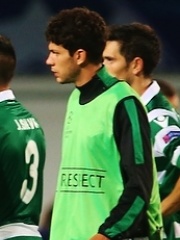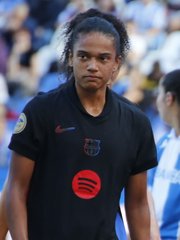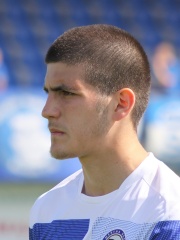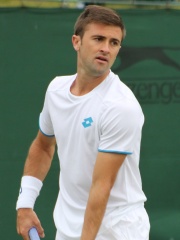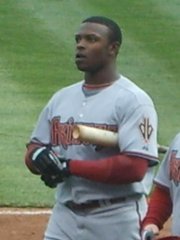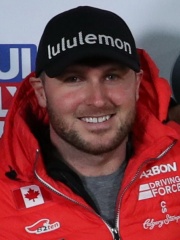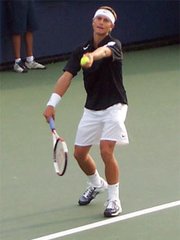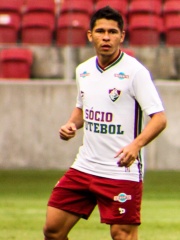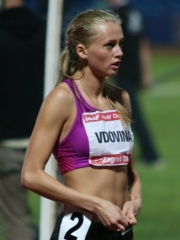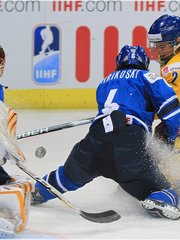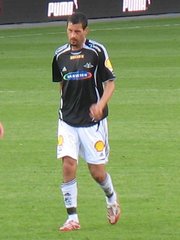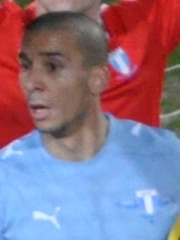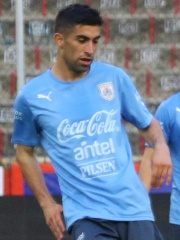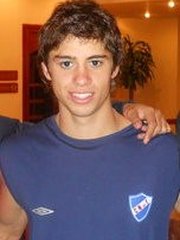Soccer Player
Diego Ifrán
1987 - today
EN.WIKIPEDIA PAGE VIEWS (PV)
 Diego Ifrán
Diego Ifrán
His biography is available in 18 different languages on Wikipedia. Diego Ifrán is the 19,471st most popular soccer player (down from 17,894th in 2024), the 457th most popular biography from Uruguay (down from 437th in 2019) and the 324th most popular Uruguayan Soccer Player.
Memorability Metrics
Page views of Diego Ifrán by language
Among Soccer Players
Among soccer players, Diego Ifrán ranks 19,471 out of 21,273. Before him are Klæmint Olsen, Christopher Lenz, Jindřich Staněk, Tomoyuki Yoshino, Tobias Figueiredo, and Esmee Brugts. After him are Ali Karimi, Shōhei Ogura, Antonio Barreca, Exequiel Zeballos, Fanol Përdedaj, and Rubén Belima.
Most Popular Soccer Players in Wikipedia
Go to all RankingsKlæmint Olsen
1990 - Present
HPI: 35.06
Rank: 19,485
Christopher Lenz
1994 - Present
HPI: 35.06
Rank: 19,486
Jindřich Staněk
1996 - Present
HPI: 35.06
Rank: 19,487
Tomoyuki Yoshino
1980 - Present
HPI: 35.06
Rank: 19,488
Tobias Figueiredo
1994 - Present
HPI: 35.06
Rank: 19,489
Esmee Brugts
2003 - Present
HPI: 35.06
Rank: 19,490
Diego Ifrán
1987 - Present
HPI: 35.06
Rank: 19,491
Ali Karimi
1994 - Present
HPI: 35.05
Rank: 19,492
Shōhei Ogura
1985 - Present
HPI: 35.05
Rank: 19,493
Antonio Barreca
1995 - Present
HPI: 35.05
Rank: 19,494
Exequiel Zeballos
2002 - Present
HPI: 35.05
Rank: 19,495
Fanol Përdedaj
1991 - Present
HPI: 35.05
Rank: 19,496
Rubén Belima
1992 - Present
HPI: 35.05
Rank: 19,497
Contemporaries
Among people born in 1987, Diego Ifrán ranks 1,587. Before him are Tim Smyczek, Rong Hao, Justin Upton, Anton Kokorin, Justin Kripps, and Michael Seater. After him are Alex Kuznetsov, Osvaldo Lourenço Filho, Elle Logan, Kseniya Ryzhova, Antoñito, and Jenni Hiirikoski.
Others Born in 1987
Go to all RankingsTim Smyczek
TENNIS PLAYER
1987 - Present
HPI: 35.10
Rank: 1,581
Rong Hao
SOCCER PLAYER
1987 - Present
HPI: 35.09
Rank: 1,582
Justin Upton
POLITICIAN
1987 - Present
HPI: 35.08
Rank: 1,583
Anton Kokorin
ATHLETE
1987 - Present
HPI: 35.08
Rank: 1,584
Justin Kripps
ATHLETE
1987 - Present
HPI: 35.07
Rank: 1,585
Michael Seater
ACTOR
1987 - Present
HPI: 35.06
Rank: 1,586
Diego Ifrán
SOCCER PLAYER
1987 - Present
HPI: 35.06
Rank: 1,587
Alex Kuznetsov
TENNIS PLAYER
1987 - Present
HPI: 35.04
Rank: 1,588
Osvaldo Lourenço Filho
SOCCER PLAYER
1987 - Present
HPI: 35.04
Rank: 1,589
Elle Logan
ATHLETE
1987 - Present
HPI: 35.04
Rank: 1,590
Kseniya Ryzhova
ATHLETE
1987 - Present
HPI: 35.01
Rank: 1,591
Antoñito
SOCCER PLAYER
1987 - Present
HPI: 35.00
Rank: 1,592
Jenni Hiirikoski
POLITICIAN
1987 - Present
HPI: 35.00
Rank: 1,593
In Uruguay
Among people born in Uruguay, Diego Ifrán ranks 457 out of NaN. Before him are Joaquín Boghossian (1987), Alejandro Lago (1979), Álvaro Enrique Peña (1989), Guillermo Molins (1988), Adrian Carambula (1988), and Michael Santos (1993). After him are Santiago Bueno (1998), Franco Acosta (1996), Michelle Suárez Bértora (1984), Rubén Bentancourt (1993), Matías Cabrera (1986), and Diego Rodríguez (1989).
Others born in Uruguay
Go to all RankingsJoaquín Boghossian
SOCCER PLAYER
1987 - Present
HPI: 35.83
Rank: 451
Alejandro Lago
SOCCER PLAYER
1979 - Present
HPI: 35.75
Rank: 452
Álvaro Enrique Peña
SOCCER PLAYER
1989 - Present
HPI: 35.52
Rank: 453
Guillermo Molins
SOCCER PLAYER
1988 - Present
HPI: 35.49
Rank: 454
Adrian Carambula
ATHLETE
1988 - Present
HPI: 35.45
Rank: 455
Michael Santos
SOCCER PLAYER
1993 - Present
HPI: 35.25
Rank: 456
Diego Ifrán
SOCCER PLAYER
1987 - Present
HPI: 35.06
Rank: 457
Santiago Bueno
SOCCER PLAYER
1998 - Present
HPI: 34.70
Rank: 458
Franco Acosta
SOCCER PLAYER
1996 - 2021
HPI: 34.59
Rank: 459
Michelle Suárez Bértora
SOCIAL ACTIVIST
1984 - 2022
HPI: 34.47
Rank: 460
Rubén Bentancourt
SOCCER PLAYER
1993 - Present
HPI: 34.43
Rank: 461
Matías Cabrera
SOCCER PLAYER
1986 - Present
HPI: 34.14
Rank: 462
Diego Rodríguez
SOCCER PLAYER
1989 - Present
HPI: 33.88
Rank: 463
Among Soccer Players In Uruguay
Among soccer players born in Uruguay, Diego Ifrán ranks 324. Before him are Renzo Lopez (1994), Joaquín Boghossian (1987), Alejandro Lago (1979), Álvaro Enrique Peña (1989), Guillermo Molins (1988), and Michael Santos (1993). After him are Santiago Bueno (1998), Franco Acosta (1996), Rubén Bentancourt (1993), Matías Cabrera (1986), Diego Rodríguez (1989), and Adrián Gunino (1989).
Renzo Lopez
1994 - Present
HPI: 36.03
Rank: 318
Joaquín Boghossian
1987 - Present
HPI: 35.83
Rank: 319
Alejandro Lago
1979 - Present
HPI: 35.75
Rank: 320
Álvaro Enrique Peña
1989 - Present
HPI: 35.52
Rank: 321
Guillermo Molins
1988 - Present
HPI: 35.49
Rank: 322
Michael Santos
1993 - Present
HPI: 35.25
Rank: 323
Diego Ifrán
1987 - Present
HPI: 35.06
Rank: 324
Santiago Bueno
1998 - Present
HPI: 34.70
Rank: 325
Franco Acosta
1996 - 2021
HPI: 34.59
Rank: 326
Rubén Bentancourt
1993 - Present
HPI: 34.43
Rank: 327
Matías Cabrera
1986 - Present
HPI: 34.14
Rank: 328
Diego Rodríguez
1989 - Present
HPI: 33.88
Rank: 329
Adrián Gunino
1989 - Present
HPI: 33.88
Rank: 330





